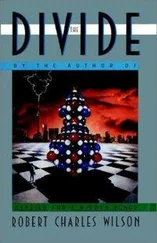I didn’t talk to my family again until my father died. It was Mama Laura who called with the news. “I cannot say he didn’t suffer, but the hospital was generous about painkillers, so it wasn’t as bad as it might have been. Aaron came to see him at the last. Aaron’s drinking pretty heavily these days, I’m sorry to say. But he was sober for his father’s sake.”
A funeral and memorial service had been arranged. My father’s business acquaintances would all be there, including the leading lights of the Onenia County Republican Committee. I would not be turned away, she said, if I chose to attend. But it might be awkward, under the circumstances.
“Did he ask about me at all, before he died?”
It was a stupid question, and I should have known better than to ask.
“Adam … no. But I’m sure he thought of you.”
I didn’t attend the funeral.
Geddy and Rebecca were in India at the time, doing volunteer work for an NGO, helping to assemble modular housing for the legions of Mumbai’s poor made homeless by the Short War. They came back shortly before the funeral, and I began to hear from them every week or two. Their calls became absurdly important to me.
Rebecca talked a great deal about New Socionome. She wasn’t evangelical about it, but her enthusiasm would have been hard to conceal, and she wasn’t interested in concealing it. She blogged on the subject, and I read some of her posts. I liked her idealism, except when it grated on me. She called from Boston one winter evening when I was home from a day’s work, facing unwashed laundry and maybe an hour of pointless television before bed. She was eager to tell me about some fresh iteration of a New Socionome algorithm, the words spilling out of her until I said, more cruelly than I had intended, “Does it matter? I mean, Jesus, what does it change? Eight billion people on the planet, weather disasters, war—what does it matter than somebody invented a new way to make friends ?”
She was surprised but not deterred. “I think you know it matters,” she said. “I think that’s why you’re so scared of it.”
* * *
They called it the Klein test now. It had been simplified and streamlined since we introduced the first crude Affinity home-test kits eight years ago. A headband sensor array, software to interpret eye movement and skin conductivity, a secure link to a New Socionome test site, and a few hours spent looking at generated images and answering apparently simple questions.
Plus, of course, the final and decisive keystroke, the one that entered your data into the global calculus.
In this case, my data. The suite of numbers that defined me. My one and only true name.
* * *
Weeks passed. Nothing happened.
I figured I must be unique, a totally insular human being, no useful social valency at all, nothing to contribute to the centuries-long project of making the world a better place.
Then I received the text message. A terse invitation. Date, place, time. The names of certain strangers.
“It takes real courage,” Geddy had warned me, “not to hit DELETE.”
* * *
So I found myself on a crowded sidewalk on an early summer evening, heading for an unfamiliar address.
The world was as shitty and imperfect as it had ever been, but lately I had been wondering if Geddy and Rebecca might be right: maybe there was something (as Rebecca had said in her blog) “a little Renaissancey” in the air. Some shared intuition, unspoken but felt, a verdict of the heart, a suspicion, too fragile to be called optimism, that the world was not old and exhausted but young and undiscovered. Something that passed between strangers in the twilight like a knowing smile.
A wind came up from the west, raising dust from the summer-hot street, and I turned a corner and saw the address I had been given. A small café, its windows spilling yellow light onto the pavement. And yes, I was afraid. But it felt good to be in motion, to be for that moment no one and nothing but myself, stepping through another door into the sound of human voices.
Science fiction is a genre that famously generates new words. Readers may have noticed the word “teleodynamics” in The Affinities and assumed it was another such science-fictional neologism. But I didn’t invent the term; I borrowed it from Terrence W. Deacon’s fascinating Incomplete Nature: How Mind Emerged from Matter (W. W. Norton & Company, 2011). In Deacon’s book the word refers to the kinds of thermodynamic processes that are intrinsic to living things, and by extension to human consciousness. And while at one point Deacon hints that teleodynamics might eventually help us understand social interactions, he nowhere suggests anything even remotely similar to what I describe in The Affinities . In other words, I thank him for the loan of a useful word and a fascinating concept, and I apologize for extrapolating it far beyond anything he ever intended.












